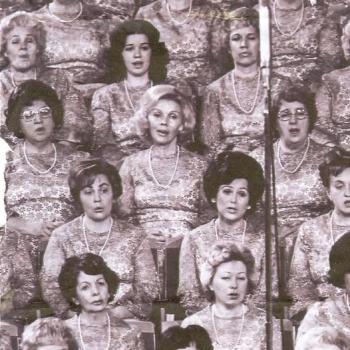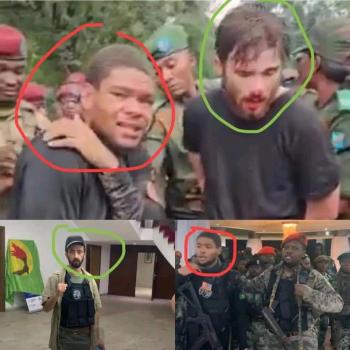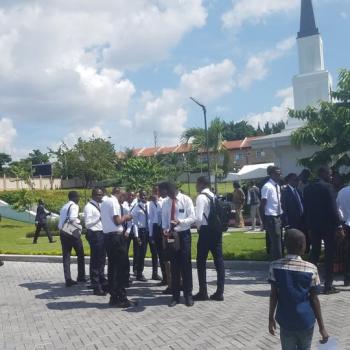I met D arius Gray on July 29th, 1998. We started writing our books about black Mormon pioneers later that same year. When we finished the first volume, Darius wrote a touching preface about the racism his son had experienced and why our book mattered so much to him. Our publisher, Deseret Book, had some problem with the preface. They thought that some people (white people) might be offended by it.
arius Gray on July 29th, 1998. We started writing our books about black Mormon pioneers later that same year. When we finished the first volume, Darius wrote a touching preface about the racism his son had experienced and why our book mattered so much to him. Our publisher, Deseret Book, had some problem with the preface. They thought that some people (white people) might be offended by it.
Darius was away on a family vacation, as I recall, and not reachable when the head of Deseret Book presented a re-write of the preface for me to consider. I said that I couldn’t speak for Darius, but that it looked good to me.
And thus began our first fight. Darius was beyond troubled that I hadn’t seen how problematic the re-write (which deleted his son’s story) was, and that I had gone along with it. In many ways, it was a silencing of his voice–something he had experienced many times during his life.
I do not recall the details of this, our first fight, but it escalated until I decided we could not possibly work together. I told my husband that I was quitting. The first book was done, and that would simply have to be enough.
Bruce’s words to me were remarkable. “I have a testimony of a few things, and one of them is that you and Darius and supposed to do this project together. So figure out what you need to do to get the work done.”
I called Darius and got no answer. I then drove to his place–forty-five minutes from my home. He wasn’t there.
The next sequence of events was miraculous, and some context is required.
I get lost all the time. When friends and I were performing “I Am Jane” in Chicago, Keith Hamilton announced that I wouldn’t be allowed to drive anymore because I kept making wrong turns. Darius called me “directionally challenged.”
At the Grays’ door, I had a flash of inspiration. I knew where Darius was. He was at the gravesite of Green Flake, a short distance away.
I had been to the grave only once, and it wasn’t an easy route. Nonetheless, I got back in my car and drove. Amazingly, I drove directly to the cemetery. I pulled up and saw Darius near Green Flake’s grave. (He often went there to “talk” to Green about the challenges of being Black in Utah.)
As I walked towards Darius, he said, “You don’t need to say anything. I told the Lord that if we were really supposed to work together, to bring you here.”
That fight was my first introduction to the idea of appropriation, a subject which occupies my thoughts frequently. There is a desire in majority populations to tell the stories on behalf of minority populations. Darius and I found that our second book, Bound for Canaan, was troubling to some people. In that book, we portrayed the beginnings of the restriction and quoted the actual words of some church leaders. It IS an uncomfortable book, because the history itself is uncomfortable.
As for the revision of Darius’s preface–it was tabled. The preface in our first book (originally published by Deseret Book) stands as Darius wrote it.
As for Darius and me, we completed our trilogy and a documentary about Black Latter-day Saints. We do not have any projects together at the moment, though we are in contact as we notice the revived racism in the USA. We have mourned together over the new divides and wondered how we can possibly get past the conspiracy theories which look exactly like the ones we saw in the 1960s.
Questions I ask myself often are, How can we catalyze rather than commandeer? How can we support the stories without centering them around our own experiences? How can we prepare our hearts and those of our posterity to swell “wide as eternity“? How can we move past political narratives and into the divine narrative? How can we honor our individual stories without appropiating another’s?
The big fight–not that little one which almost broke up our little team–is the fight for a Zion society, where all are of “one heart and one mind.” Darius wrote to me recently, “In case you’re wondering, I’m still in the fight.”
Me too. And on the front lines if need be.













